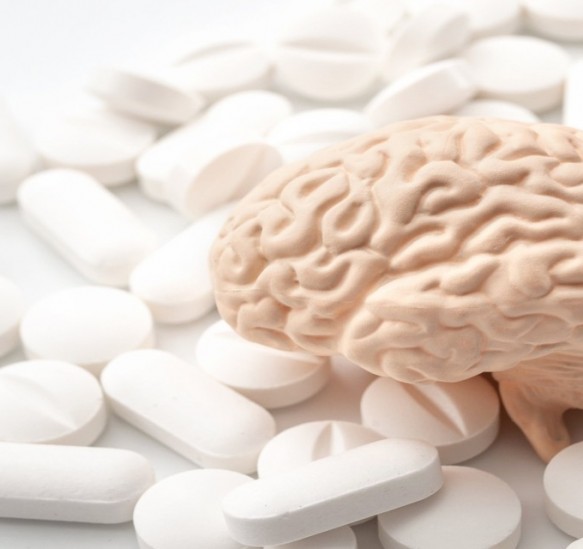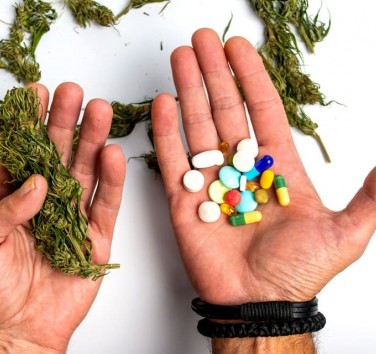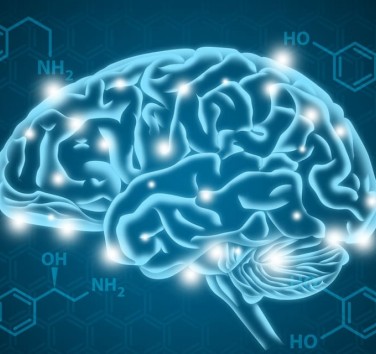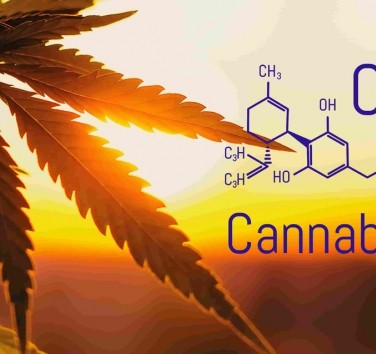Sommaire
- Is consuming CBD and antidepressants dangerous?
- Antidepressants at increased risk with CBD
- CBD and Antidepressants: A combination not recommended
- Possible drug interactions with CBD
- What is an antidepressant?
- For what diseases are they prescribed?
- How do these psychological disorders arise?
- How to diagnose a mental disorder in a person?
- The different side effects of treatment with antidepressants
- Alternatives to original treatments?
- How does CBD affect mood?
- What is OCD (Obsessive Compulsive Disorder)?
- Does CBD help people with OCD?
- What is social anxiety?
- Can CBD help people with social anxiety?
- Potential side effects of Laroxyl: What you need to know
- Interactions between Laroxyl and CBD: Points to consider
- How long does an antidepressant stay in the blood?
CBD is a molecule that continues to reveal secrets as new scientific research is carried out. However, some drug alterations are possible, but what if CBD is consumed with antidepressants? We will now focus on CBD and the probable effect linked to the consumption of antidepressants on the human body and mind.
Is consuming CBD and antidepressants dangerous?
First of all, these drugs are not dangerous strictly speaking overall, but the question of a possible interaction between the antidepressants and CBD can easily surface among consumers.
It is also important to know that CBD has a high risk of interacting with antidepressants. In fact, the latter acts on the same areas of the brain as this medication and this can alter the quality of the treatment.
CBD does not cause psychotropic effects and has no or very few unpleasant side effects for consumers, such as dizziness or nausea. However, it causes a change in brain and liver chemistry metabolism. This can cause a significant reduction in the time it takes for an antidepressant to be processed by the liver, which can cause an increase in blood flow.
Is it possible to mix CBD and antidepressants?
This question may seem surprising, but you should know that many consumers ask it. Although some people consume recreational cannabis, which has a high level of THC, the effects will incidentally be the same, without the accentuated psychotropic effects due to THC.
You should also know that different types of antidepressants exist such as first generation and second generation antidepressants. Within these medications, there are some medications that can cause a serious interaction with the person's health and others that do not present any specific interaction.
Some people report a double effect if CBD is consumed with antidepressants, which may seem consistent depending on the medication concerned, because it may have an action on a particular neuron and CBD could act as a complement on other neurons. But you must speak with a health professional, such as your doctor, before embarking on this dangerous experiment, because the effects can sometimes become dramatic.
.png)
Antidepressants at increased risk with CBD
Antidepressants with increased risks with concurrent CBD use are generally tricyclics and MAOIs.
Tricyclics are the oldest antidepressants on the pharmaceutical market and are part of the first generation. Due to the early appearance on the market and the lack of awareness of the side effects caused to consumers, side effects are much more numerous and interactions are possible. These medications work by blockingthe uptake of the neurotransmitters norepinephrine and serotoninin order to increase their levels in the brain.
MAOIs are newer generation antidepressants and nevertheless have a serious interaction with CBD and with large amounts of food. These medications work by prolonging the presence of neurotransmitters in the brain, such as dopamine, serotonin, and norepinephrine.
CBD also has increased risks of interaction with medications that are not just antidepressants. Indeed, medications specific to reducing anxiety exhibit interactions. For example, drugs such as Xanax, can present beneficial interactions in small quantities by improving the action on the brain and on the connection between neurons, while if they are consumed in large quantities quantity, this could cause worrying side effects like the ones we are about to see:
-
Dizziness;
-
Tachycardia;
-
Paranoia attacks;
-
Drowsiness;
-
Concentration problems;
-
Speech problems and confusion;
These effects caused by the simultaneous consumption of these two molecules may not occur with each consumption. You should know that each person will react differently to this consumption and that the effects can be either weaker or more serious.
To avoid any drug interactions that could harm your health, talk to your doctor!
The question we can now ask is that of a possible interaction between several drugs and CBD. This is why we are going to list the list of possible interactions between medications and CBD.
CBD and Antidepressants: A combination not recommended
After having explored in depth the multiple facets of CBD and antidepressants, one constant remains: combining these two elements proves risky. Although CBD appears to be a promising option for treating certain ailments, it is fundamental to emphasize that it is in no way compatible with antidepressants. Studies have shown that CBD interacts directly with the same brain areas as those targeted by antidepressants, which can potentially interfere with the effectiveness of the prescribed treatment.
The answer to the question “Can we take CBD and antidepressants at the same time?” is a definite no.
However, it is common to come across testimonials reporting personal experiences where CBD seems to complement or amplify the action of antidepressants. But these stories, as convincing as they may be, cannot replace the advice of a health professional. These interactions are complex, and what works for one person may be dangerous for another.
In summary, CBD certainly has potential to counter certain depressive symptoms, but it should never be considered as a complement or substitute for antidepressants. Caution is advised: if you are considering introducing CBD into your routine, it is imperative to consult a doctor. The mixture of CBD and antidepressants remains, until proven otherwise, a combination to be avoided.
Possible drug interactions with CBD
In France and around the world, several million medications are available over the counter or by prescription. Obviously, we know the main drugs and the molecules that compose them.
Thus, many interactions are possible with certain medications and with CBD. First of all, let's remember thatCBD is a molecule that has been known for several decades throughout the world and that its effects are becoming better and better known. It is also possible to affirm certain beneficial effects that it causes, such as the beneficial effects onepileptic seizures and on Parkinson's diseaseby providing well-being to tremors.
This molecule is not psychotropic, unlike its partner which is tetrahydrocannabinol, in other words, THC. Indeed, it acts on the endocannabinoid system naturally present in our body and on the CB1 and CB2 receptors that make it up.
It also causes few side effects on consumers, although some experience nausea or dizziness following normal consumption, but these effects are experienced by a small number of people. CBD also has an overdose threshold that it is possible to reach, but this is very rare, since this threshold is 1500 mg per day, in other words, the daily average which allows to to feel the full effects is 25 mg.
If you experience an overdose, whether unintentional or voluntary, simply rest and drink or eat something sweet.
So we know what CBD is and can now know what the possible interactions are.
For this, you should know that according to a study by the Penn State of College of Medicine on Harvey published in the Medical Cannabis and Cannabinoids, CBD and THC pose risks of interaction with 57 drugs.
-compressed.jpg)
CBD and corticosteroids
Corticoids are anti-inflammatories and immunosuppressants that reproduce the effects of cortisol or cortisone which are often prescribed in the fight against autoimmune diseases. Among these medications, we can find Prednisone, Prednisolone and betamethasone.
These medications cause serious side effects on consumers and can sometimes represent increased risks for certain health concerns already present and increased dependence when stopping treatment.
If you consume CBD and corticosteroids at the same time, the risk of developing side effects is very high and this can quickly become dangerous. Indeed, when passing through the liver, CBD and the molecules present in these medications will then slow down the transformation of the molecules, which could cause an increase in the presence of cortisone in the blood, which could, of course, worsen known side effects.
CBD is antihistamines
These medications are common to people who have many allergies, since they are used to combat allergies experienced, such as allergies to pollen or dust mites. They are also prescribed in the fight against flu-like conditions.
In these drugs, we find many molecules, but the one that interests us the most remains doxylamine which is also present in the drug called "Humex". Indeed, when you consume CBD and this medication at the same time, it is possible to develop a range of side effects:
-
Drowsiness;
-
Concentration problems;
-
Confusion;
-
Cognitive disorders;
-
Motor disorders;
-
Respiratory disorders;
The cause of these side effects is mainly linked to CBD. Yes, this “miracle” molecule is responsible for many side effects with this medication.
The latter is responsible for disrupting the enzymes responsible for the breakdown ofdoxylaminein the liver, leading to poor absorption and to the appearance of the effects mentioned above.
This medication is also in the sights of health services, because it contains another molecule which is responsible for several negative and psychotropic effects when consumed in large quantities or in a derivative manner.
CBD and anticoagulants
Anticoagulants are medications specific to certain health problems. They help thin the blood in order to reduce the formation of blood clots, which can occur due to cardiovascular problems.
Its consolation is very controlled in the medical field, because one of the most serious side effects is that of the risk of hemorrhage if the blood is too diluted and an injury occurs to the body .
Among these drugs, we can find Warfarin on which CBD offers a booster effect. Indeed, the latter will tend to boost the thinning effects of this medication, which can represent a risk over time. The risk is mainly that of hemorrhage in the event of injury.
CBD and opiates
Opioids are increasingly popular medications, particularly in the United States which is currently experiencing the opioid crisis.
This group of drugs certainly represents the most drugs that we are all familiar with, such as Efferalgan, Doliprane or Dafalgan, which are often used to treat fever and mild to moderate pain.
However, these drugs represent a group of their own in interactions with CBD, since a study demonstrates that CBD would also improve their effects.
Indeed, there are no defined contraindications for these medications and the relaxing and anti-inflammatory effects of CBD contrast with the effects of opioids. However, be careful to dose the CBD correctly so as not to suffer from overdose effects so as not to have hypotensive effects which can make you tired throughout the day.
CBD and beta blockers
Beta-blocker medications are among the heaviest available on the market. Indeed, the latter are prescribed for people who suffer from high blood pressure or cardiovascular disorders.
The treatment is quite heavy overall and alone causes several side effects:
-
Dizziness;
-
Fatigue;
-
Extremity cooling;
-
Decreased heart rate;
-
Digestive problems, such as nausea, vomiting and diarrhea;
-
Reduction in physical effort.
This medication is obviously not available over the counter, since it causes severe effects and is strictly dedicated to a single category of patients.
The consumption of CBD coupled with the consumption of this treatment is very dangerous for the health of consumers. Indeed, CBD itself has a hypotensive effect, which, coupled with the consumption of beta-blockers, can be dramatic.
Avoid consuming this medication with CBD or talk to your doctor to avoid possible complications.
All these treatments should be taken with caution and the consumption of CBD should in no case turn out to be medicinal. This molecule should be considered as a food supplement coupled with a healthy and balanced diet and physical and sporting activity.
What is an antidepressant?
An antidepressant is an often heavy medication, assigned to patients with various anxiety and depression disorders. This medication is one of the most prescribed medications worldwide today to treat these mental disorders.
To know the effects of an antidepressant on the human body, you need to know its role in it. An antidepressant is a medication designed to regulate neurotransmitters in the brain in order to regain psychological balance. In our body, many chemical substances are present and help regulate this balance, but sometimes, the connection between these substances is not completely made due to a fragile brain state. The antidepressant will then act by balancing this functionality in order to reconnect our substances, which are the basis of our emotions.
Generally assigned to people with severe or mild anxiety, these medications can be found in the treatment of different pathologies that we will see below.
You should know that there are different types of antidepressants in order to best treat people suffering from these psychological disorders. For example, it is possible to find antidepressants acting on only one or two neurotransmitters while other antidepressants ignore them completely.
To benefit from treatment with these medications, it is important to know that they are not available over the counter. Indeed, you must first see your doctor and take certain exams in order to prove the presence of this psychological disorder.
For what diseases are they prescribed?
You should know that antidepressants are not only attributed to psychological disorders of anxiety, although the latter can trigger certain disorders which we can see below.
Much research has taken place to provide knowledge of these antidepressants and these mechanisms carried out on the brains of people suffering from these disorders. This makes it possible to safely consume these medications and guarantee effective treatment, although everyone reacts differently.
Concerning the psychological disorders for which these medications are prescribed, here is the list of some of them:
-
Depression;
-
Anxiety disorders;
-
Bulimia;
-
Decreased interest and pleasure;
-
Fatigue and loss of energy;
-
Suicidal thoughts;
-
Eating disorders;
-
Menopause and andropause;
-
Panic disorders;
-
Premenstrual dysphoric disorder.
Of course, it is possible to have antidepressants for other psychological disorders not mentioned in the list above.
It should also be noted that certain disorders can lead patients to experience different disorders for which these medications are prescribed. For example, the anxiety that we can all feel at least once during our lives,can develop in the form of a psychological illness and push the person suffering from this disorder to develop forms of bulimia, disorders food or in the worst case, suicidal thoughts.
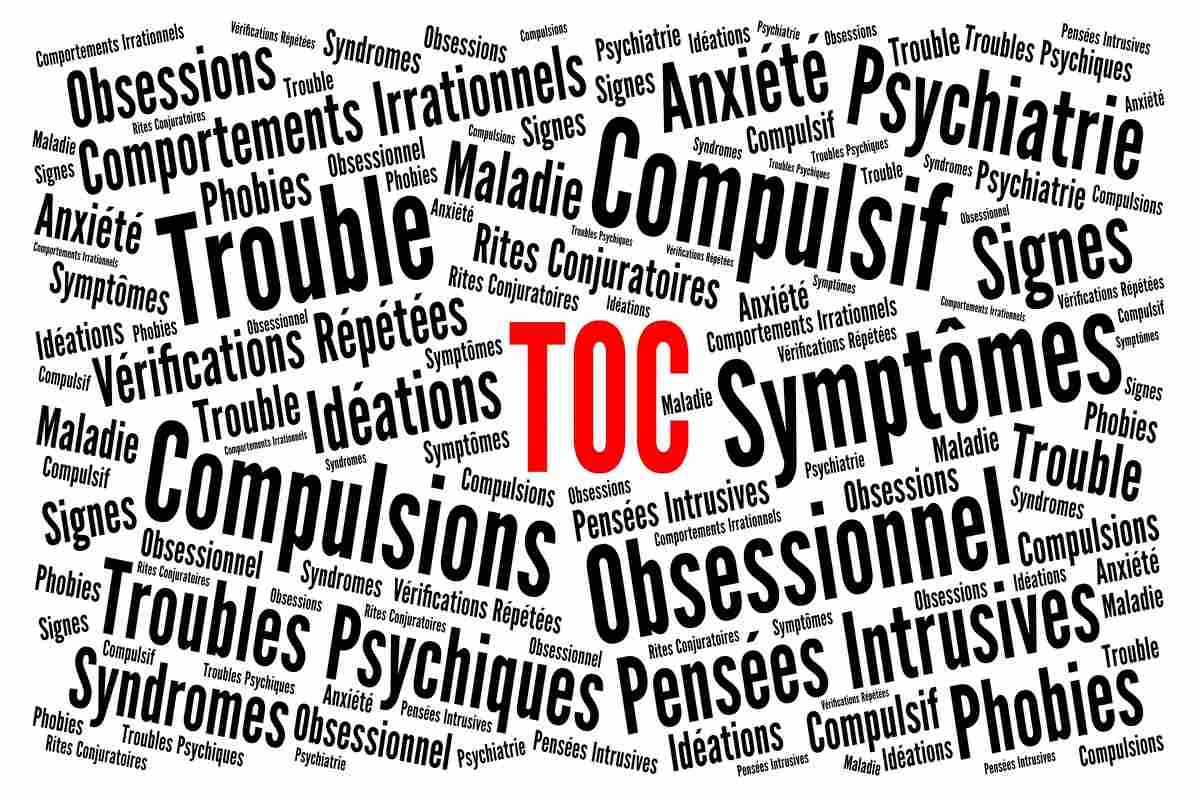
How do these psychological disorders arise?
You should know that there are no typical profiles for mental disorders, but certain populations are at greater risk of developing them.
Let's talk figures, in Europe, one in four people suffer from a psychological disorder of varying intensity and frequency during their life. This means that a psychological disorder is either permanent or occasional and can occur at the age of 30, without reappearing during an individual's life.
However, 75% of mental disorders appear before the age of 25, which is generally the age at which the brain and body have reached maturity. It is possible that certain populations are more at risk of developing psychological disorders:
-
Young children and adolescence: In this period of hormonal and psychological development, certain disorders can begin to appear or develop very slowly and come to light well. years later. For example, certain disorders are fully revealed during this period, such as autistic disorder, childhood psychosis, language disorders, tics and Gilles de la Tourette syndrome;
-
During pregnancy in women: During this period, the hormones present in the woman's body are subject to enormous changes and certain disturbances can occur, giving free rein to psychological disorders. Among these disorders, we can find the baby blues, postpartum depression or puerperal psychosis;
-
In the elderly: During this phase of life, the body and brain have already begun their decline and diseases as well as various disorders can appear. Let's focus on brain aging, which can cause psychological disorders such as Alzheimer's or Parkinson's disease.
Be careful not to stigmatize people with mental disorders! Indeed, a psychological disorder present in a person is not representative of that person. The latter can certainly change the way they see things, or act, but a person suffering from mental disorders is not necessarily a dangerous person. There are indeed disorders that represent dangers for sick people or those around them, such as schizophrenia which distorts the reality perceived by those affected.

How to diagnose a mental disorder in a person?
Diagnosing a mental disorder is not easy, because it can be silent and occur at certain key moments in a person's life. In other words, a psychological disorder is not necessarily visible in a person's life.
However, it is possible to be diagnosed or to refer a professional to a person for whom you have doubts. The latter will then propose its diagnosis with the help of different protocols proposed by global organizations such as theWHO (World Health Organization) which offers a World Classification of Diseases, as well as the American Psychiatric Association ( APA ).
These two globally recognized organizations group together different psychological disorders in the same way. For example, anxiety disorders include panic disorder, generalized anxiety, hypochondriasis, OCD and many others. The same goes for other disorders such as addictive disorders, which concern addiction to substances or video games or for psychotic disorders including psychosis or schizophrenia.
Sometimes, some people with mental disorders may not be aware that they have one. For this, the approach is different and the person will then be reluctant to seek treatment for something of which they are not aware. To do this, you must not force her, but calmly explain the situation to her.
However, the various antidepressants present on the pharmaceutical market for many years have sometimes very significant side effects.

The different side effects of treatment with antidepressants
Although these drugs are a real success in the medical world and a very interesting feat for technical advancement.
However, like all drugs on the pharmaceutical market, antidepressants have several side effects. Obviously, the effects vary depending on the person and the diseases being treated.
Among these side effects we can have nausea and vomiting, as well as several digestive problems in a third of patients. There are rarer side effects, which may appear during the first weeks of treatment, such as skin rashes, headaches or insomnia.
During medium-term consumption, undesirable effects such as a reduction in sexual desire have been reported, both in men and women. There are different side effects depending on the type of antidepressants prescribed, such as dizziness, withdrawal symptoms, sleep disturbances and in the worst cases, with only one type of medication, a risk of liver toxicity which can cause damage. irreversible effects on the body and health of consumers.
First generation antidepressants present risks of dry mouth, diarrhea, dizziness and significant weight gain. They remain in the background and are only assigned if other treatments have not had the desired effect.
Certain medications are also subject to increased surveillance due to adverse effects that could be dangerous for patients' health.
It is important to be supported by specialists to benefit from treatment adapted to the disorder diagnosed.
Alternatives to original treatments?
Although antidepressants are very popular and have conclusive results in the fight against mental disorders, several alternatives are available to cure them.
The best known of all is obviously psychotherapy. It consists of externalizing certain traumas in order to find the origin of the psychological disorder and to provide non-drug solutions to overcome it.
There are other ways that are sometimes surprising, like omega-3, which can improve the mood of the person suffering. There is also yoga and physical activity which allow you to externalize the feelings you feel. Acupuncture and light therapy also help relieve people of their anxiety thanks to the effects provided.
Nevertheless, before embarking on alternative treatments, it is essential to consult your doctor in order to have a more interesting diagnosis adapted to your health.
How does CBD affect mood?
CBD, or cannabidiol, is a compound naturally present in the cannabis plant. Over the years, it has attracted increasing interest due to its many potential health effects, including its influence on mood. So how does CBD affect mood?
To understand its impact, it is important to note that CBD does not have the same psychoactive properties as THC, another cannabis compound responsible for psychotropic effects. Rather, CBD acts on the body's endocannabinoid system, a complex system involved in the regulation of various physiological processes, including emotions and mood.
When CBD is consumed, it interacts with receptors in the endocannabinoid system, particularly CB1 and CB2 receptors, found in the brain and throughout the body. This interaction promotes the regulation of many chemical processes and neurotransmitters, some of which play a key role in regulating mood.
One of the main ways that CBD can influence mood is by increasing levels of anandamide, a neurotransmitter often referred to as the "happiness molecule." Anandamide is responsible for regulating emotional balance and the feeling of well-being. By increasing anandamide levels in the brain, CBD can potentially improve mood and reduce feelings of stress, anxiety, and depression.
In addition, CBD may also interact with other neurotransmitters, such as serotonin, which plays an important role in regulating mood. Studies suggest that CBD may promote an increase in serotonin levels in the brain, which may contribute to improved mood and reduced symptoms of depression.
It should be noted that the effects of CBD on mood can vary from person to person, and the exact mechanisms of its action on mood still require further research. Additionally, it is important to emphasize that CBD should not be considered a substitute for conventional medical treatments for mood disorders. If you are suffering from persistent mood problems, it is recommended that you consult a qualified healthcare professional for an accurate diagnosis and appropriate recommendations.
CBD appears to have the potential to positively influence mood by regulating neurotransmitters and chemical processes in the brain. However, more research is needed to better understand its mechanism of action and its specific effectiveness in treating mood disorders.
What is OCD (Obsessive Compulsive Disorder)?
Obsessive compulsive disorder, commonly known as OCD, is a mental disorder that affects a significant percentage of the world's population. People with OCD face recurring obsessions and compulsions that have a significant impact on their daily lives.
Obsessions manifest themselves through intrusive thoughts, images or impulses that are intrusive and unpleasant. These thoughts are often recurring and difficult to control. People with OCD experience significant distress over these obsessions and often try to ignore or suppress them.
To cope with these obsessions and reduce the anxiety they cause, individuals develop compulsive behaviors. Compulsions are repetitive, ritualized behaviors aimed at reducing anxiety or preventing a feared situation. For example, a person with contamination-related OCD may wash their hands excessively and compulsively.
OCD can affect all aspects of daily life, including interpersonal relationships, work, and social activities. They can cause significant emotional distress, leading to impaired quality of life.
The exact cause of OCD is not yet completely understood, but several contributing factors are identified. Genetic, environmental and neurobiological factors appear to play a role in the development of this disorder. Chemical imbalances in the brain, particularly in neurotransmitters like serotonin, are also associated with OCD.
Fortunately, there are effective treatments for OCD. Cognitive-behavioral therapy (CBT) is often considered the first-line treatment. It helps individuals recognize irrational thought patterns related to obsessions and modify their compulsive behaviors. In some cases, medications, such as selective serotonin reuptake inhibitors (SSRIs), may be prescribed to reduce symptoms.
It is important to emphasize that OCD is a serious medical condition and requires assessment and monitoring by a qualified healthcare professional. If you think you may have symptoms of OCD, it is recommended that you consult a doctor or psychiatrist for an accurate diagnosis and appropriate treatment plan.
OCD is a mental disorder characterized by recurring obsessions and compulsions. They can have a significant impact on the daily lives of those affected. However, with proper diagnosis and treatment, it is possible to manage and reduce OCD symptoms, allowing individuals to lead more fulfilling lives.
Does CBD help people with OCD?
CBD (cannabidiol) has attracted growing interest as a potential complementary treatment for various mental health disorders, including OCD (Obsessive Compulsive Disorder). However, it should be noted that research on the effectiveness of CBD in treating OCD is still limited and additional studies are needed to better understand its specific impact on this disorder.
Some preliminary studies suggest that CBD may have beneficial effects in the management of OCD. CBD acts on the body's endocannabinoid system, which is involved in the regulation of various biological processes, including emotions, anxiety and compulsive behavior. By interacting with receptors of the endocannabinoid system, CBD can potentially modulate these processes and have a regulatory effect on the symptoms associated with OCD.
A 2015 study examined the effect of CBD on animal models of OCD and showed promising results. Researchers found that CBD could reduce compulsive behaviors in rats with symptoms similar to human OCD. These results suggest that CBD may help alleviate obsessive and compulsive behaviors associated with OCD.
However, it is important to note that studies on the use of CBD for OCD are still limited and additional research is needed to confirm these findings and determine the exact mechanisms of action of CBD in the context of OCD. OCD.
In addition, it should be emphasized that the treatment of OCD generally requires a comprehensive approach including cognitive behavioral therapies (CBT) and, in some cases, medications. CBD should not be considered a replacement for conventional treatments, but rather a potential supplement that can be discussed with a healthcare professional.
As with any substance, it is also important to consider the potential side effects of CBD. Although CBD is generally considered safe, side effects such as drowsiness, dry mouth, and interactions with other medications are possible. It is essential to consult a healthcare professional before starting any new treatment or changing your existing regimen.
Although preliminary studies suggest that CBD may have beneficial effects in the management of OCD, research is still limited. It is important to consult a healthcare professional to discuss appropriate treatment options and to obtain personalized advice on the use of CBD in the context of OCD.
What is social anxiety?
Social anxiety, also known as social phobia, is an anxiety disorder characterized by an intense and persistent fear of social situations. People with social anxiety tend to feel excessive anxiety and significant discomfort when faced with social interactions, whether in group situations, meeting unfamiliar people, or even performing in person. public.
The symptoms of social anxiety can vary in intensity, from mild embarrassment to extreme anxiety. People with this disorder may fear being judged, humiliated, or ridiculed by others. They may experience intense self-depreciation and negatively anticipate upcoming social interactions, which can lead to social withdrawal and impaired quality of life.
Common situations that can trigger social anxiety include social gatherings, public presentations, work meetings, parties, and interactions with unfamiliar people. People with social anxiety may also experience physical symptoms such as rapid heartbeat, sweating, tremors, nausea, and gastrointestinal problems.
Social anxiety can have a significant impact on daily life, interpersonal relationships, professional career and self-esteem. This is why it is important to recognize the symptoms of social anxiety and seek appropriate support. Therapeutic approaches, such as cognitive-behavioral therapy (CBT), may be effective in helping people with social anxiety manage their symptoms and develop coping strategies.
Can CBD help people with social anxiety?
CBD (cannabidiol) has attracted growing interest as a potential tool for managing social anxiety, an anxiety disorder characterized by intense fear of social situations and significant discomfort during social interactions. Although research into the use of CBD for social anxiety is still ongoing, some preliminary studies suggest that CBD may offer some benefits in managing this disorder.
CBD acts on the body's endocannabinoid system, which is involved in the regulation of various biological processes, including emotions, stress and anxiety. By interacting with receptors of the endocannabinoid system, CBD can potentially modulate these processes and have a regulatory effect on anxiety.
A study published in 2011 examined the impact of CBD on social anxiety in people with the disorder. Participants received either CBD or a placebo before a stressful situation simulating public speaking. Results showed that the CBD group had a significant reduction in social anxiety, as measured by objective and subjective assessments.
Other studies have also suggested that CBD may help alleviate symptoms of social anxiety, such as performance fear, negative thoughts, and discomfort during social interactions. However, it is important to note that study results are variable and additional research is needed to better understand the effectiveness of CBD in treating social anxiety.
It should also be emphasized that the treatment of social anxiety is complex and requires a comprehensive approach including cognitive behavioral therapies (CBT), stress management techniques and, in some cases, medication. CBD should not be viewed as a single solution, but rather as a potential complement to existing treatment. It is essential to consult a healthcare professional to obtain appropriate medical advice and to discuss treatment options suitable for each individual.
When it comes to safety, CBD is generally considered safe, but side effects such as drowsiness, dry mouth, and interactions with other medications are possible. It is important to choose quality products and follow proper dosage recommendations.
Potential side effects of Laroxyl: What you need to know
Laroxyl, also known as amitriptyline, is a medication that belongs to the tricyclic antidepressant class. It is primarily used to treat depression, mood disorders, and some chronic pain conditions.
Like any medicine, Laroxyl can cause side effects in some people. It is important to note that not all side effects occur in all patients, and the severity of the effects may vary from person to person. Some side effects commonly associated with Laroxyl include:
Drowsiness
Laroxyl has a sedative effect and may make some people feel tired and drowsy. It is therefore generally taken before bedtime to minimize this effect.
Dry mouth
Laroxyl may reduce saliva production, which may cause a dry mouth sensation and affect the taste of food.
Constipation
Some patients may experience intestinal transit problems, including constipation, while taking Laroxyl.
Weight gain
Laroxyl may cause weight gain in some people, possibly due to a change in appetite and metabolism.
Vision problems
Effects such as blurred vision, sensitivity to light or disturbances in accommodation may occur in some patients.
Dizziness
Some patients may feel dizzy or light-headed while taking Laroxyl.
Cardiovascular effects
Laroxyl may cause adverse effects on the cardiovascular system, including irregular heartbeat, hypotension, or high blood pressure.
It is important to note that this list is not exhaustive and other side effects may occur. It is recommended to consult a healthcare professional for complete information on the potential side effects of Laroxyl, as well as to discuss any specific concerns or symptoms.
Interactions between Laroxyl and CBD: Points to consider
Laroxyl may cause adverse effects on the cardiovascular system, including irregular heartbeat, hypotension, or high blood pressure.
It is important to note that this list is not exhaustive and other side effects may occur. It is recommended to consult a healthcare professional for complete information on the potential side effects of Laroxyl, as well as to discuss any specific concerns or symptoms.
When it comes to potential interactions between Laroxyl (amitriptyline) and CBD (cannabidiol), it is important to note that specific information is limited and results may vary from person to person . Drug interactions can be complex, and it is essential to consult a healthcare professional for personalized advice.
Some studies suggest that CBD may inhibit certain liver enzymes, called cytochromes P450, which play a role in the metabolism of many drugs, including amitriptyline. This means that CBD could increase blood levels of Laroxyl, which could lead to increased side effects.
Additionally, like amitriptyline, CBD may also have sedative properties. Using these substances together may potentially increase sedative effects, such as drowsiness and fatigue.
It is essential to note that drug interactions can vary depending on several factors, including dosage, frequency of use, individual sensitivity, and other medications or supplements taken at the same time. Therefore, it is strongly recommended to consult a healthcare professional before combining Laroxyl and CBD or any other cannabis supplement.
A doctor or pharmacist will be able to provide personalized medical advice taking into account your specific situation and help you make informed decisions regarding the concomitant use of Laroxyl and CBD.
How long does an antidepressant stay in the blood?
When it comes to taking antidepressants, many people wonder how long these drugs stay in their body. Understanding how long antidepressants stay in the blood is important to assess their effectiveness and minimize the risk of side effects.
The length of time antidepressants remain in the blood can vary from one medication to another. In general, most antidepressants require several days of regular intake before reaching therapeutic levels in the blood. This means that the beneficial effects of the medication may take time to appear.
Once the drug has reached therapeutic concentrations, it remains present in the blood for some time, even after you stop taking it. Half-life is a term commonly used to describe the length of time it takes for the concentration of the drug in the blood to decrease by half. The half-lives of antidepressants vary widely, from several hours to several days.
Some antidepressants with a short half-life, such as Sertraline, have a relatively short presence in the blood. This means they must be taken daily to maintain consistent therapeutic levels. Other antidepressants with a longer half-life, such as Fluoxetine, can remain in the blood for several weeks, allowing prolonged action to be maintained even if you occasionally forget to take it.
It is important to note that the duration of presence of antidepressants in the blood can vary depending on several individual factors. Some patients may metabolize medications more quickly or slowly, which may affect how long they work. Additionally, the therapeutic response to antidepressants may vary from person to person, often requiring dosage adjustments or medication changes.
In conclusion, the duration of presence of antidepressants in the blood depends on the specific drug and the associated half-life. It is essential to carefully follow the healthcare professional's recommendations regarding regular medication intake and not to abruptly interrupt treatment without medical advice. If you have any questions about how long antidepressants work or about your treatment, do not hesitate to consult your doctor or pharmacist.

